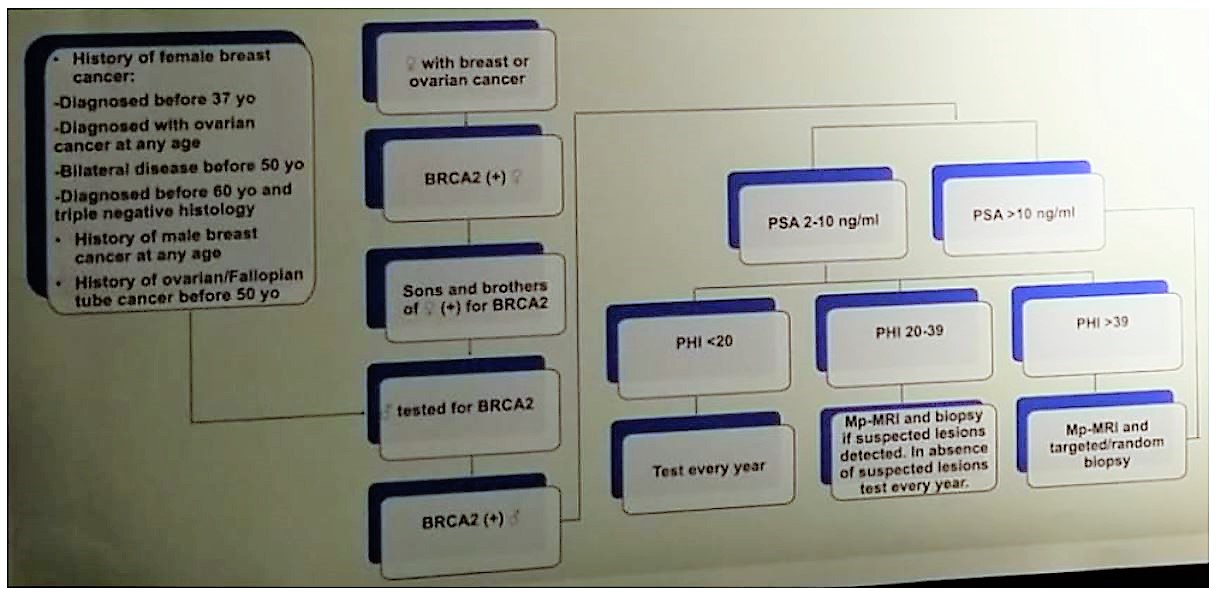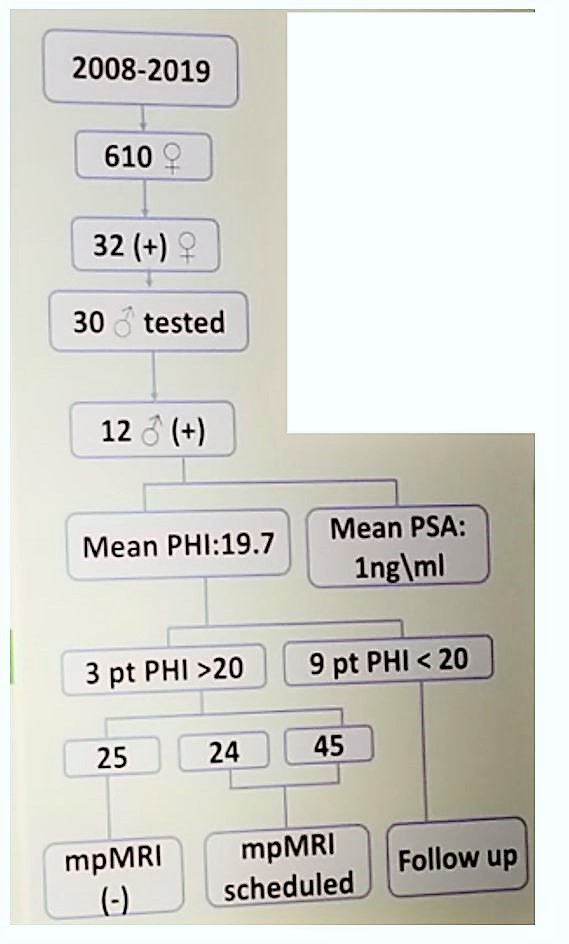Barcelona, Spain (UroToday.com) Up to 10% of prostate cancer cases are hereditary. Germline pathogenic mutations in BRCA2 genes confer the highest risk in prostate cancer (2.5-8.6-fold in men <65 y/o). In this study, the authors evaluated how to better identify and screen BRCA2 mutated men.
Data from all women with a history of breast or ovarian cancer who tested positive for BRCA1-2 germline pathogenic mutation in the last three years at the authors’ center were reviewed. All carriers’ first-degree male relatives were subsequently identified and offered targeted BRCA1-2 mutational analysis.
All men that tested positive for a BRCA2 mutation but without evidence of prostate cancer were analyzed. These men had a PSA test (figure 1) and a prostatic health index (PHI) test was performed as well. The PHI is a calculation that uses a combination of three blood tests to produce a "phi score." This score provides more information about what elevated PSA levels might mean and the probability of finding prostate cancer on biopsy. When PHI score was low (<20) only yearly monitoring was undertaken. If PHI was between 20-39 – an mpMRI was performed and if a suspicious lesion was found, a targeted biopsy was performed. If PHI>39 – an mpMRI and a targeted+systematic biopsy was performed in all patients.
Figure 1- Study design:
Over 610 female patients were tested for BRCA-2, and 32 (5.2%) women were identified to harbor BRCA 2 mutations. Their healthy male carriers’ relatives (30 men) agreed to be tested as well and 12 men (40%) were found to harbor the BRCA2 mutation (Figure 2). The median PHI score of these men was 19.7 (range 12-45) with a mean total PSA of 1 ng/ml (range 0.5-3.65 ng/ml). Three patients had a PHI >20, one underwent an mpMRI that was negative and the other two are awaiting their mpMRI test.
Figure 2 – Results of men identified with BRCA 2 mutations:
The authors concluded that this work could serve as a proof of concept to provide the basis of national and international new screening programs in male carriers of BRCA mutations.
Presented by: Nicolò Buffi, MD, Dept. of Urology, Istituto Clinico Humanitas IRCCS Clinical and Research Hospital, Humanitas University, Milan, Italy
Written By: Hanan Goldberg, MD, Urologic Oncology Fellow (SUO), University of Toronto, Princess Margaret Cancer Centre
@GoldbergHanan at the 34th European Association of Urology (EAU 2019) #EAU19, conference in Barcelona, Spain from March 15-19, 2019.




